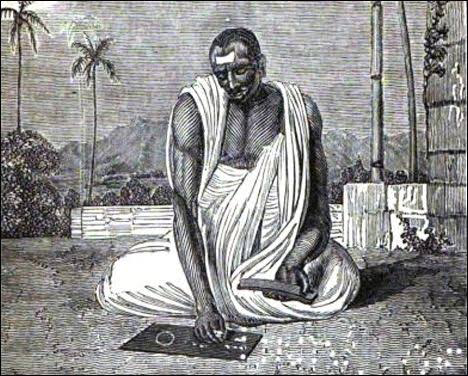Person who discover gravity 1300 years before Newton
- Get link
- X
- Other Apps
The Ancient Indian Scholar Who Discovered Gravity 1300 Years Before Newton
Introduction
When we discuss the discovery of gravity, the name that immediately springs to mind is Sir Isaac Newton. However, history reveals that long before Newton's time, another brilliant mind from the Indian subcontinent had made significant strides in understanding the force that keeps us grounded. In this blog post, we will delve into the life and contributions of this often-overlooked Indian scholar who discovered gravity more than a millennium before Newton.
The Trailblazer: Brahmagupta
The remarkable scholar in question is Brahmagupta, an ancient Indian mathematician and astronomer who lived during the 7th century CE. Born in Ujjain, India, Brahmagupta made groundbreaking contributions to various fields of mathematics and astronomy, including the understanding of gravity.
Brahmagupta's Contributions
Siddhanta Shiromani: Brahmagupta's most significant work was the "Siddhanta Shiromani" ("Crown of Treatises"), a comprehensive text that covered various aspects of mathematics and astronomy. In this monumental work, Brahmagupta explored the concept of gravity in the context of celestial bodies.
Gravitational Force on Earth: Brahmagupta posited that objects fall on Earth due to a force of attraction, a concept remarkably similar to gravity. He described this force as "gurutva karshan," which can be translated to "the force of attraction by the Earth." While he did not formulate a mathematical equation like Newton, he was one of the earliest thinkers to propose that a force existed that caused objects to fall toward the Earth.
Celestial Mechanics: Brahmagupta's work also delved into the motion of celestial bodies. He described the orbits of planets around the Sun and the Moon's orbit around the Earth. While he did not have the mathematical tools available to later scientists like Kepler and Newton, his ideas laid the foundation for future developments in celestial mechanics.
Legacy and Influence
Brahmagupta's insights into gravity and celestial mechanics were incredibly advanced for his time. His work influenced subsequent generations of Indian and Islamic astronomers and mathematicians. It is important to note that while Brahmagupta's ideas were conceptually similar to gravity, he did not provide the mathematical framework and universal principles that Newton later formulated. Nevertheless, his contributions are a testament to the rich scientific heritage of ancient India.
Conclusion
The story of Brahmagupta, the Indian scholar who discovered gravity more than a millennium before Isaac Newton, is a testament to the intellectual depth of ancient civilizations. While his understanding of gravity may not have been as precise or mathematically rigorous as Newton's, it was a significant step toward unraveling one of the fundamental forces of the universe. Recognizing Brahmagupta's contributions allows us to appreciate the global history of scientific exploration and the diverse minds that have shaped our understanding of the world.
- Get link
- X
- Other Apps





Comments
Post a Comment